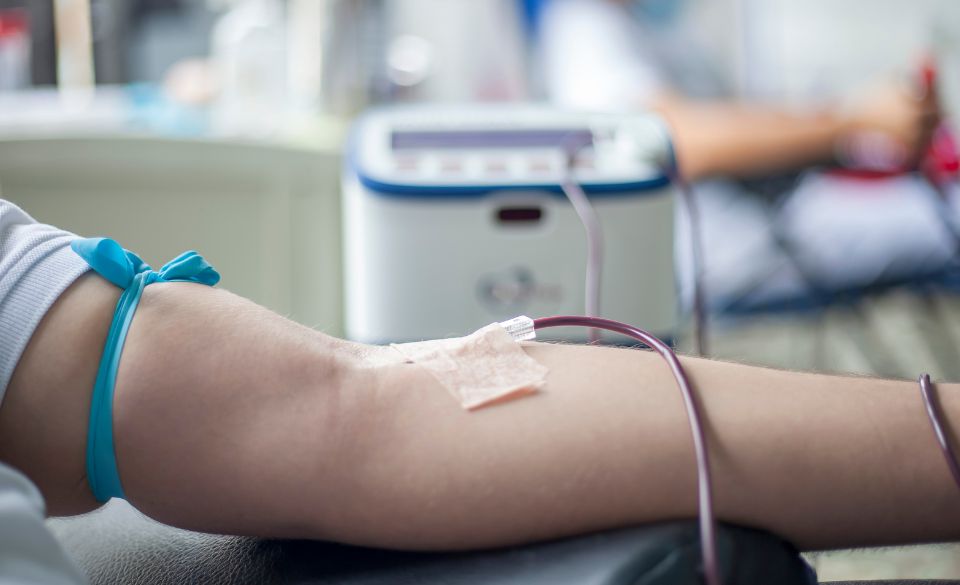
Can Runners Donate Blood? A Complete Guide
Page Contents
Generous donors contribute their time and blood to save lives, reflecting their genuine concern for health. Naturally, coaches and medical staff often receive inquiries regarding the compatibility of blood donation and running, especially when training for races like marathons or even 10k events. The good news is, runners can absolutely continue to donate, but there are some essential considerations to keep in mind.
Blood Donation Eligibility
Blood donation isn’t universally applicable. Specific criteria must be met, including having an adequate hemoglobin count. Individuals with anemia, characterized by insufficient hemoglobin (essentially, low iron levels), may not qualify as donors. It’s worth noting that many female endurance runners may face this issue. However, the eligibility criteria are easily determined. When you make an appointment, we conduct a hemoglobin test during check-in. If your hemoglobin levels meet the required standards, you’re all set to donate. If not, your willingness is highly appreciated, and you can encourage a friend to donate on your behalf.
Rest on Donation Day
We recommend refraining from vigorous exercise for a full 24 hours after donating blood. Therefore, it’s advisable to schedule your donation appointment on a rest day to ensure a smooth recovery.
Types of Blood Products and Recovery Times
Whole Blood: Whole blood donation is likely the most familiar to many. In this method, donors provide one pint of blood, containing all the blood products, including red cells, platelets, and plasma. Plasma typically recovers within a few days, but it may take several weeks for platelets and red cells to fully regenerate. A study at the University of Northern Texas revealed that the time to exhaustion for runners who donated whole blood returned to baseline levels after seven days. For runners in the midst of intensive training, this recovery period might seem prolonged. Hence, donating whole blood may not be the best choice during the peak of your training season. However, it is encouraged during the off-season or early in your training regimen.
Double Red Blood Cells: Double red blood cell donation, performed with a special machine, extracts only red blood cells while returning plasma and platelets to the donor’s body. It allows us to collect twice the number of red blood cells compared to regular whole blood donations. This type of donation usually requires donors to meet specific hemoglobin and body weight/height criteria. Consequently, it’s advisable to save this option for the off-season.
Platelets: Platelets are primarily used for cancer patients and organ transplants. Special machines are used to extract only platelets while returning red cells and some plasma to the donor. Recovery time for platelet donation is shorter compared to whole blood or double red cells. However, it’s best to donate platelets at the beginning of your training season or when you can take a brief performance break.
Plasma: Similar to platelets and double red blood cells, plasma is collected using a machine that separates plasma while returning other blood components (red cells and platelets). Recovery time is notably shorter for plasma donations because a significant portion of the blood content is returned. The study indicated that the time to exhaustion for runners who donated plasma (as opposed to whole blood) returned to baseline after just two days. If you’re in the midst of your training season and can accommodate a couple of days of slightly reduced performance, plasma donation might be the ideal choice.
If you choose to donate, whether during your training season or off-season, ensure you stay well-hydrated, maintain regular meals, and follow an iron-rich diet in preparation for your donation appointment.
In addition to the critical aspects outlined above, it’s essential to delve further into the intersection of blood donation and running, as both activities share the common goal of promoting health and well-being.
The Runner’s Perspective
Many runners might wonder how blood donation can impact their training and performance. It’s crucial to emphasize that while temporary reductions in athletic performance can be expected after donating blood, the overall impact varies depending on the type of donation and the individual’s training intensity.
Recovery Strategies
To mitigate the potential effects on training, runners can adopt specific recovery strategies post-donation. Adequate hydration is a cornerstone in this regard. Drinking water, sports drinks, or hydrating fluids rich in electrolytes can help replenish lost fluids during blood donation. Moreover, maintaining balanced and nutritious meals is vital to support recovery.
Iron-rich diets are especially important for runners. Since blood donation can deplete iron levels, including foods like lean red meats, poultry, fish, beans, and iron-fortified cereals in your diet can help ensure you maintain optimal iron levels. Runners should also consider supplementation under the guidance of a healthcare professional.
Timing of Donations
In planning your blood donation, timing is key. Ideally, scheduling blood donations during your off-season or low-intensity training periods can minimize any performance disruptions. This approach allows runners to give back to the community while minimizing the impact on their race preparations.
Final Words – Can Runners Donate Blood?
In conclusion, while the act of donating blood aligns with the selfless spirit of many runners, it’s essential to understand the specific demands on your body and tailor your donation schedule accordingly. Donating during your off-season or adjusting training loads around the donation date can strike a balance between your commitment to running and giving the gift of life. By staying well-hydrated, maintaining a nutrient-rich diet, and following expert advice on iron supplementation, runners can effectively manage the impact of blood donation on their athletic pursuits.


